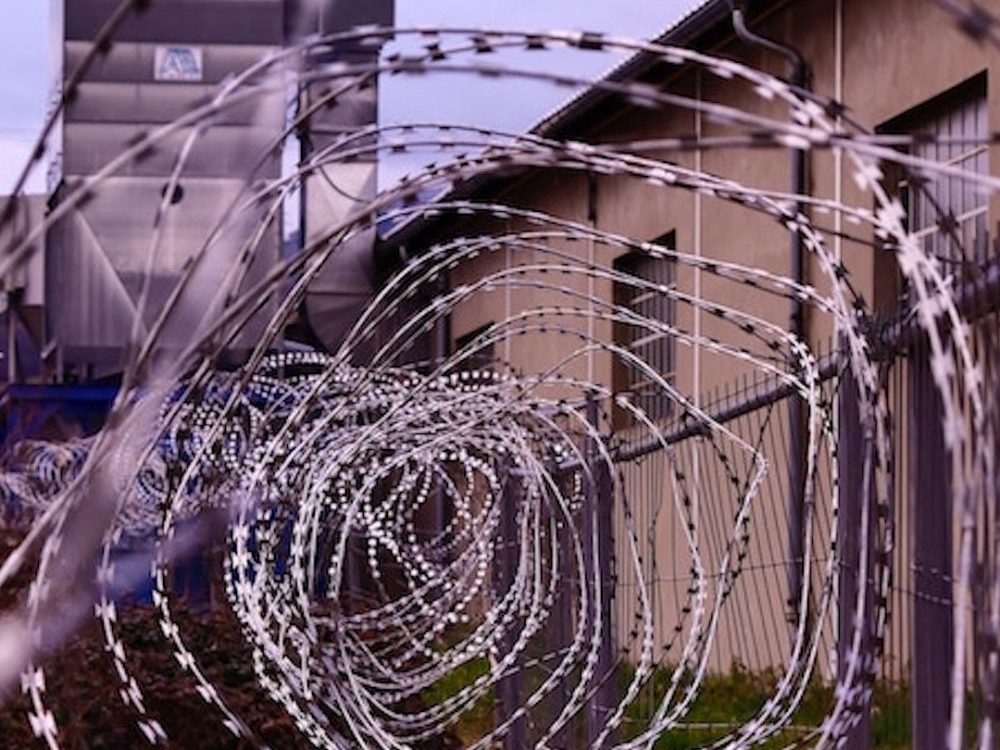This summer it was revealed that women who’d been trafficked into prostitution in the UK were being held at Yarl’s Wood detention centre indefinitely, breeching Home Office policy. Sadly this was just another in a long line of scandals surrounding the notorious site.
The Home Office introduced the Adults at Risk policy in 2016 after a review found detention causes profound psychological damage to women who’ve experienced sexual violence, trafficking, torture and PTSD, yet it’s been continually ignored. A report concluded that the Home Office is deliberately refusing to protect women who have experienced serious human rights abuses, and are aware they are inflicting further damage on them.
Located in Bedfordshire, the facility has capacity for around 400 women, mostly here because they are awaiting a decision on their asylum claim. Since opening in 2001, it has served as a clear example of how the Home Office regards them.
Women have described conditions as worse than a prison’s, except that unlike prisoners they don’t know when they will be released or removed back to their country of origin. The fear and isolation this causes has led to 90% of women at Yarl’s Wood to experience depression and anxiety.
Maria Kassaga spent two months at Yarl’s Wood, an experience she describes as “hellish”, which “seemed like two decades”. “It has left damage that will take years and years to rectify. I’m not the same person who walked into that centre,” she says.
As well as being verbally abused, she was denied decent food and medication. “I could see women walking with crutches. I thought, what is that person doing in a detention centre? What is a pregnant woman doing in a detention centre? It’s really inhumane. The guards treat you like you’re nothing. You feel like somebody is taking a gun and aiming to shoot you. It’s horrendous.”
Since 2007, Yarl’s Wood has been run by Serco, an outsourcing company that also operate GP surgeries, rail services, and court security.
A study by the Black Women’s Rape Action Project (BWRAP) and Women Against Rape covering the years 2005 – 2015 found that a “regime of predatory sexual abuse (including racist sexual abuse) has been allowed to flourish, and the guards responsible have stayed in post through takeovers by different private companies that over the years have had responsibility for running Yarl’s Wood.”
In 2015, undercover footage filmed by Channel 4 News that showed guards referring to detainees as “bitches”, featured staff discussing a highly distressed woman who was bleeding the day after having a miscarriage, and was reprimanded for trying to call an ambulance. There have been many complaints about the lack of adequate medical treatment, which on occasion has led to death. Healthcare provision outsourced to G4S drew so much criticism their contract was given to NHS England, who, lacking resources, subcontracted back to G4S who run the service to this day.
BWRAP has declared it “irredeemably corrupt”. Yet Serco continue to run the centre to the tune of £85 million per contract.
A fellow detainee told Maria about the All African Women’s Group, a self-help group for women seeking asylum who meet every fortnight to help with each other’s cases, plan campaigns and answer calls from those inside detention. They sent her a handbook with practical info on detention and legal rights; the invaluable advice has helped many, including Maria, to get out of Yarl’s Wood.
But this advice is routinely labelled “banned material” and confiscated by guards, who only return the guides after reports reach the press.
Since leaving Yarl’s Wood Maria has been actively campaigning with the All African Women’s Group for its closure, supporting the women inside who show incredible resilience despite the guard’s efforts, which can only be described as dehumanising. In 2010 a group of hunger strikers protesting the indefinite length of their detention were punished by being locked out of their rooms in an airless hallway with no access to water. Last year, the Home Office sent letters to hunger strikers warning of “removal from the UK taking place sooner”.
“We’ve been campaigning since 2004 with women who’ve been inside detention,” says Cristel Amiss, Project Manager at BWRAP. “Every time they’ve been on hunger strike, we’ve done our best to get their voices out into the wider public view so what they’re saying can be heard by people who are generally good hearted, who don’t like to think this country is detaining people in conditions which include solitary confinement to stop them from organising collectively.”
“The whole business of detention is meant to be governed by the Adults at Risk policy – guidelines about who can be detained. They’ve got filing cabinets full of this stuff but none of that is paid any attention to,” she explains. “Once you have a private company running it, you have a buffer in between the state and the people who’ve been detained, where everything can be blamed on the company, and the Government can wash its hands of the deaths in detention. They always talk about having a high regard for people’s health and welfare. But they don’t, they’ve got a private company making profit out of brutality.”









